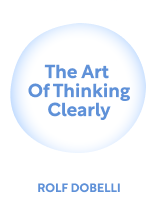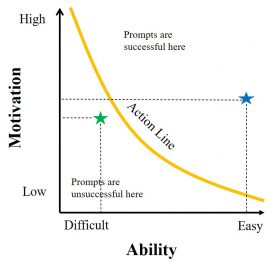

This article is an excerpt from the Shortform book guide to "The Art of Thinking Clearly" by Rolf Dobelli. Shortform has the world's best summaries and analyses of books you should be reading.
Like this article? Sign up for a free trial here .
What is survivorship bias? Why does it occur?
Survivorship bias is where you anticipate a higher chance of success in a project or venture than you actually have of achieving. This happens because success is more widely publicized than failure.
Let’s explore the definition of survivorship bias and how not to fall prey to it.
Survivorship Bias
Let’s start with the definition of survivorship bias: Survivorship bias is the belief that you have a better chance of succeeding than you actually do because success stories are more widely publicized than failures. Widely publicized information is easier to access, triggering the salience effect: You latch on to this information when making judgments about your chance of success, ignoring the many invisible stories of failure.
Survivorship bias is found in most fields, especially those in which success brings fame. For example, you might see seemingly inexperienced teenagers competing in the Olympics and therefore think it’s easy to qualify for the team. Meanwhile, the vast majority of athletes never qualify.
Survivorship bias doesn’t just affect people trying to succeed, Dobelli notes. When you’ve already succeeded, you’re more likely to attribute your success to traits you share with other successful people, ignoring that those same traits can be found in many of the people who failed.
How can you avoid survivorship bias? Dobelli says to research statistics and examples of failure in the field you’re considering. This will give you a better idea of your chances of success. (Shortform note: Start your research by asking “What am I missing?” and looking for holes in your data. In addition, be careful when researching: If your sources are incomplete or suffering from survivorship bias themselves, they won’t help you ascertain reality.)
| Survivorship Bias and Story Bias Dobelli attributes survivorship bias to how easy attaining information about success is, especially when success leads to fame. However, research suggests a deeper reason for this bias: humanity’s desire for storytelling, as discussed in the last section. You want a satisfying, logical narrative that explains how people found success so you can do the same. To create this narrative, you ignore the probability of failure, only taking information about success into account. You search for concrete explanations for other people’s success, even though success is often determined by luck. This also explains why survivorship bias affects you even when you’ve achieved success: Your desire for a story (this time about how you succeeded) doesn’t change. In addition, self-serving bias plays a role: When good things happen, you credit yourself for it. Your brain doesn’t want to credit your success to chance, and that, combined with your desire for story, pushes you toward perpetuating survivorship bias by attributing success to certain traits you share with other successful people. |

———End of Preview———
Like what you just read? Read the rest of the world's best book summary and analysis of Rolf Dobelli's "The Art of Thinking Clearly" at Shortform .
Here's what you'll find in our full The Art of Thinking Clearly summary :
- A detailed look at the most common logical fallacies that inhibit decision-making
- How to recognize and overcome these fallacies to make better decisions
- Why you value things for arbitrary reasons






